#facefilters
Explore tagged Tumblr posts
Text
Week 8 : Face Filters
Face Filters Are Taking Over ....
Filters utilise augmented reality "which allows users to see the real world , with virtual objects superimposed upon or composited with the real world" (Sand foundry ,2023). These filters detect and transform facial features by overlaying digital masks on moving faces (Isakowitsch, 2023).
Filters have increasingly grown on social media since the introduction of face filters on snapchat in 2015 (Bunuba, 2021). Snapchat filters apply virtual accessories and modify facial features. This week's reading heavily focused on the positive and negative impacts filters have on users. Snapchat filters rely upon a facial detection tool , recognising patterns of light and dark pixels as distinct areas of the face (Barker, 2020). The rise of filters on social media platforms have contributed to the toxic beauty standards in society. Beauty and surgery filters appear to be amongst the most popular on Instagram, Snapchat and TikTok (Miller & Mclyntyre, 2022).

There is a limited definition of beauty attached to the filters users use. Face filters correct women's faces to the 'ideal' beauty standard. Filters have been recently popularized by the beauty industry. Beauty filters immediately enhance the face of users , following the current beauty trends. This includes smoothing lines on the face, evening skin tone and adding glow and highlights.
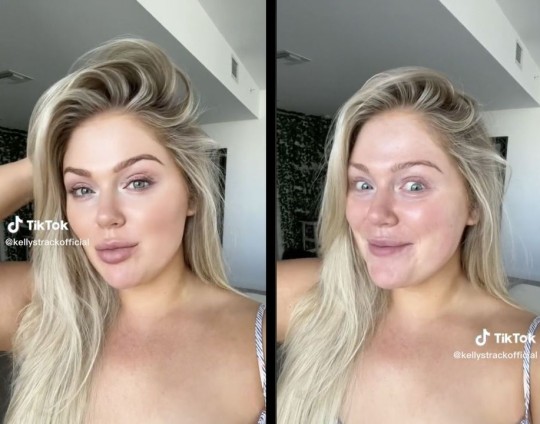
Although facial filters support a creative and fun environment, the other side of filters have created a toxic culture users experience. Social media and photo editing have been linked to self-objectification , negative self-comparison, lower mood and increased trends in plastic surgery (Ozimek et. Al, 2023). Filters increasingly make users feel detached from their natural faces , causing identity confusion when comparing unfiltered selfies and filtered selfies (Barker, 2020).
'Snapchat dysmorphia' is a new term influenced by the new beauty standards on social media platforms. Snapchat dysmorphia refers to a psychological phenomena of patients bringing filtered selfies to their surgeons , to illustrate the desire surgical changes they want to achieve (Osmani, 2020).
A topic I found interesting in this week's lecture was the focus on 'genders & filters'. Boys/ Men are known to use filters on social media for humour and entertainment, whilst girls / women use filters to look 'prettier' and 'flawless'. Use of filters by straight men lead to questions of heterosexuality and masculinity being questioned (Laverance & Cambre, 2020).
References
Barker, J 2020, 'Making-up on mobile : The pretty filters and ugly implications of Snapchat', Fashion , Style & Pop Culture, vol. 7, no.2& 3, pp. 1-16.
Osmani, S 2020, 'The Impact of Social Media on Body Image', BHS, viewed 27 April 2023, < The impact of social media on body image – The BHS Beat >
Ozimek, P , Lanias ,S , Bierhoff , G & Rogmann, E 2023, 'How photo editing in social media shapes self-perceives attractiveness and self-esteem via self-objectification and physical appearance comparisons', BMC, vol. 11, no.99, pp .1-14.
Poetker, B 2019, 'A Brief History of Augmented Reality', g2 , viewed 27 April 2023 , < A Brief History of Augmented Reality (+Future Trends & Impact) (g2.com) >
Sanfoundry 2023, 'Computer Fundamentals Questions and Answers - Augmented Reality' , Sanfoundry , viewed 27 April 2023, < Augmented Reality - Information Technology Multiple Choice Questions - Sanfoundry >
1 note
·
View note
Text
Instagram and Snapchat Filters; Entertaining and Humorous ... But For Who?
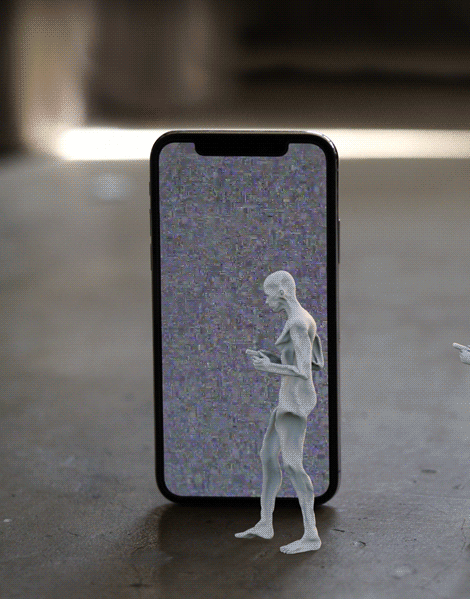
A common trend seen on social media is the desire and expectation to look ‘perfect’. The “battlefield” that women on social media continuously face is through the particular “image” (Coy-Dibley, I., 2016) that society expects them to uphold, such as flawless skin and a narrow nose (Barker, J., 2020). 57% of young people believe their mental health is getting worse as a result of social media (Headspace, 2022), and this draws a connection to the unrealistic beauty standards that are advertised on social media platforms.
In particular, in 2015, Snapchat invented ‘Lenses’, or “face filters”: an “augmented reality technology”, that alters the facial shape, and features of the user’s face (Barker, J., 2020). Augmented Reality simply is an “interface…that seamlessly blends interactive digital content into a person’s view of the physical environment” (Chylinski, M., et al, 2020), in this instance, Snapchat and Instagram Filters, in which a user can alter their appearance in both comedic and in superficial ways.
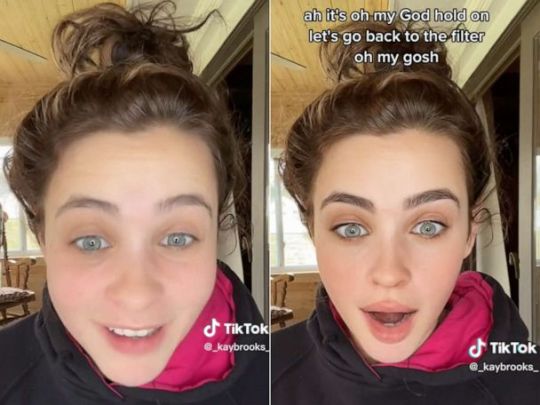
These filters create a distortion of a person’s self-image (Barker, J., 2020), which can be seen as a downfall for society. For generations, women have been expected to act, look and speak a certain way, and it appears that through these ‘filters’, women are still subject to these societal “standard” images of how they should perceive themselves (Coy-Dibley, I., 2016). Originally, women were comparing themselves to who they saw on the television and in magazines, however now, with the simple unlocking of their phones, without even the need to look at another woman’s picture, they are witness to these sculpted, unattainable and unrealistic “types of feminine aesthetics” (Coy-Dibley, I., 2016).
Although Snapchat and Instagram’s “digital adornment” features (Barker, J., 2020), can be seen as humorous and entertaining, they present an underlining systematic issue that women have to consistently face, due to society’s expectations and values.
References
Barker, Jessica. (2020). 'Making-up on mobile: The pretty filters and ugly implications of Snapchat'. Fashion, Style & Popular Culture. 7. 207-221. 10.1386/fspc_00015_1.
Chylinski, M., Heller, J., Hilken, T., Keeling, D. I., Mahr, D., & de Ruyter, K. (2020). Augmented reality marketing: A technology-enabled approach to situated customer experience. Australasian Marketing Journal, 28(4), 374–384. https://doi.org/10.1016/j.ausmj.2020.04.004
Coy-Dibley, I. (July, 2016). “Digitised Dysmorphia” of the Female Body: The Re/Disfigurement of the Image 2:16040 doi: 10.1057/palcomms.2016.40
Headspace, (May 9, 2022), Young people cite social media as main reason for worsening mental health,
Miller, LA & McIntyre, J 2022, ‘From surgery to Cyborgs: a thematic analysis of popular media commentary on Instagram filters’, Feminist media studies, vol. ahead-of-print, no. ahead-of-print, Routledge, pp. 1–17.
Rettberg J.W. (2014) 'Filtered Reality'. In: Seeing Ourselves Through Technology: How We Use Selfies, Blogs and Wearable Devices to See and Shape Ourselves. Palgrave Macmillan, London.
0 notes
Text
I cannot cope 🤣😭
#pernille harder#magdalena eriksson#emily orman#this has me dying#magda is like what you up to now😂#this team is just fully of memes#Chelsea fcw#football#woso#cfcw#blueisthecolour#up the chels#memes#facefilter#chelsea women#uwcl#denmark wnt#sweden wnt#lionesses#wsl
30 notes
·
View notes
Text
swear to god i'm just gonna stop watching the endings to shows i like. good shows need to get cancelled on cliffhangers forever
#sorry its just that this has happened like twice back to back for me here and im not really a tv show watcher so maybe other people are#better equipped to handle it and THIS ONE WAS STILL GOOD AND FUN except for the last scene. like the literal very last scene.#ridiculous in tone. like i genuinely don't know if they just ran out of time or what#they DEFINITELY ran out of money in the effects budget jesus christ. helloooo greenscreen. hello snapchat app facefilter#like the vfx are kind of hit or miss with this show but the practical effects always went HARD. and this very last scene#i cannot stress enough that this was the very last scene. they were SOOOO CLOSE <3#this last scene just looked so bad. AND IT WAS SO SILLLYYYYYYYY why sunglasses. why were the girls dressed straight out of MADELINEEEE#are there uniforms that actually look like that????#listen i thought it was going to be a BAIT AND SWTICH nightmare kind of thing.#because there was still so much time left in the video but it was just INTERVIEWS or whatever with the directors. DEVASTATING.#WHY DIDNT BEN COME WITH THEM. FUCK#sigh. pointedly not tagging the show name because i do love this show. is it perfect? nah im sure. but i DO love it#and i'm not interested in tearing it apart and reading other people do the same like i just did with The Other Show#like god i can't do that again. my heart can't take it.#david take those sunglasses off. please. for me.#I DIDN'T EVEN NEED CLOSURE ON THIS PLOT THREAD ITS FINE. THEY COULD HAVE ENDED ON THE SCENE BEFORE#i would have made do with that! or just a shot of some plane tickets on kristen's phone and some background noise#of the girls packing! something cute and sweet and implicationy like that we DID NOT NEED THE GREENSCREENNNNNNN#anyway even with what we do have I'm choosing to believe that ben was packing up his stuff and moving out there with them against his bette#judgement. like i know he said something about 'visiting' but he's rolling up his poster i can choose to believe what i want about that#i need to stop typing and thinking about it man i just realized he wasn't wearing his hat this whole episode. did his migraines go away#did i forget that from last episode. also while im complaining i WISH there was more lexis stuff this season she didn't get to be spooky#*capping my pen and throwing it across the room* but there was a lot of stuff i liked.#*gritting my teeth* im going to rewatch the season now.#or i'll just keep replaying the part where ben stumbles over the i love you. worth it just for that. because i am weak of spirit
1 note
·
View note
Text
!Potentially Controversial Opinion!
AI and facefilters have been the single biggest set back in sissy training in years.
Allow me to explain…
There are sissys on this app that given the correct motivation and strict enough domination could learn to make their appearance more feminine and unmasculine via wigs and makeup training but now with all these filters and AI any sissy can simply neglect and never learn skills which EVER sissy should have.
Maybe am wrong but its breeding laziness in you subs! Stop using makeup filters and sit your caged clitty ass down in front of a mirror and demoralise yourself by learning makeup like the girl you should look like😈😂
#permanent feminization#faggot boy#faggot sissy#sissy crossdresser#give up your manhood#sissy blackmail#sissy domination#feminize me#uk sissy diaper daddy#diaper sissy
20 notes
·
View notes
Note
i know obviously abel has a nose, but he really reminds me of that ‘wait they dont love you like i love you’ tiktok trend with the face filter i’m sorry 😭
THE. THE WHt treND⁉️⁉️⁉️
ok looked it up, I JUST SEE PPL DANCING? WHAT FACEFILTER😭😭😭 BUT— ARE YOU IMPLYING MY GUYS NOSE IS TOO HARD TO SEE😭😭⁉️
2 notes
·
View notes
Text
I HATE IT WHEN KIDS ARE HAVING A 2010S RETRO PARTY AND ALL THEY DO IS LISTEN TO BLURRED LINES, QUOTE TWILIGHT AND USE FACEFILTERS TO MAKE THEM LOOK LIKE PHOTOREALISTIC LIONS. NOBODY EVEN BOTHERS TO PUT ON AN IRON MAN SUIT OR A KYLO REN MASK. DO THEY KNOW HOW BIG THESE THINGS WERE??? I DON’T CARE IF LIVE ACTION LION KING IS A CULT MOVIE, YOU WEREN’T THERE, YOU YOUNG USELESS BRATS
5 notes
·
View notes
Text
0 notes
Text
[W8] "No filter no photo!"
Face Filters help you..
"No filter no photo!" That's what a friend of mine says every time I raise my phone to take a selfie with her. Filters have indeed become an important part of popular visual culture somehow (Rettberg, 2014). From social media platforms to messaging apps, filters have permeated various facets of online communication, offering users a myriad of creative tools to enhance and personalize their images and videos. One of the key reasons behind the widespread popularity of filters is their ability to cater to diverse aesthetic preferences and moods. Whether it's adding a nostalgic sepia tone, creating whimsical animations, or transforming into fantastical creatures, filters offer users endless possibilities for self-expression and storytelling. By allowing individuals to curate their digital identities through visually captivating effects, filters have become a means of crafting narratives and projecting desired personas in the online realm.
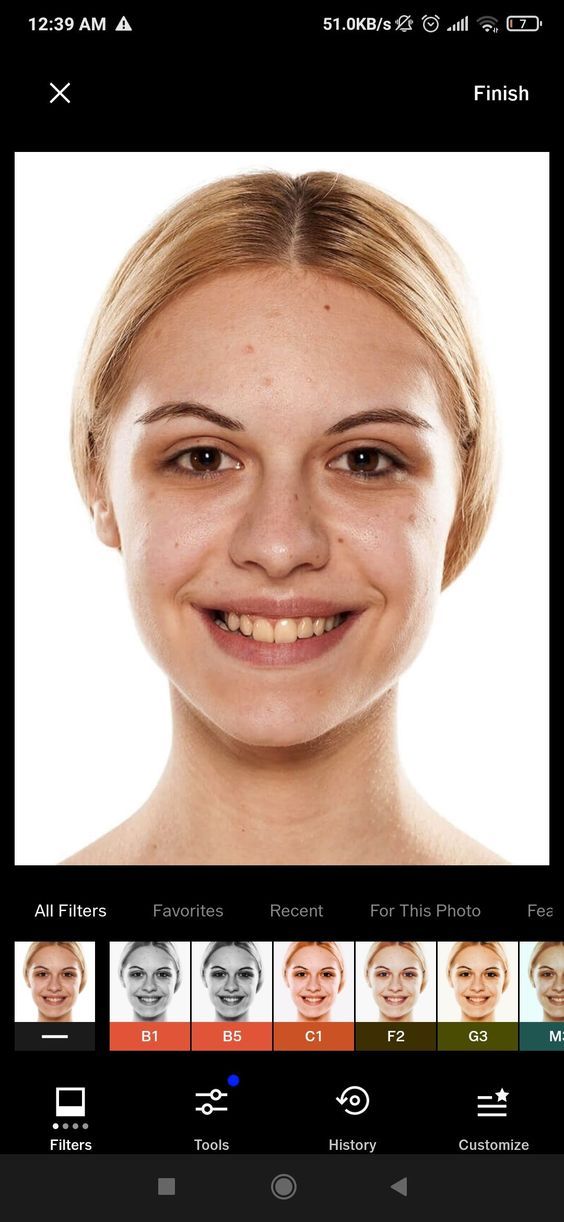
Or ruin you..?
Firstly, the normalization of face filters can lead to distorted perceptions of beauty and self-image. Filters follow trends and reinforce beauty ideals related to those circulated by the beauty industry (Barker, 2020). With the ability to instantly smooth skin, alter facial features, and enhance one's appearance, individuals may begin to develop unrealistic standards of their appearance. This can create a perpetual cycle of dissatisfaction with one's natural beauty, as filtered images become the benchmark for attractiveness. Consequently, self-esteem and body image issues can escalate, especially among young people. Moreover, the reliance on face filters can erode authenticity and genuine connections in social interactions. When individuals consistently present altered versions of themselves online, it becomes challenging to distinguish reality from illusion. Not to mentions concerns about privacy and security (Cowan, Javornik and Jiang, 2021).

In conclusion, facefilters have clearly become a common and powerful part of popular visual culture, impacting how people display themselves and engage with digital media. While filters allow for creativity, self-expression, and community interaction, they also create significant ethical and cultural challenges that require careful consideration. As we navigate the evolving landscape of digital communication, it is essential to strike a balance between innovation and responsibility, ensuring that filters are used thoughtfully and ethically to promote authenticity, diversity, and inclusivity in online spaces.

References:
Barker, J. (2020). Making-up on mobile: The pretty filters and ugly implications of Snapchat. Fashion, Style & Popular Culture, 7(2), pp.207–221. doi:https://doi.org/10.1386/fspc_00015_1.
Cowan, K., Javornik, A. and Jiang, P. (2021). Privacy concerns when using augmented reality face filters? Explaining why and when use avoidance occurs. Psychology & Marketing, 38(10). doi:https://doi.org/10.1002/mar.21576.
Rettberg, J.W. (2014). Filtered Reality. Seeing Ourselves Through Technology, pp.20–32. doi:https://doi.org/10.1057/9781137476661_2.
0 notes
Text
How to get the Justin Bieber Facefilter on TikTok?
How to get the Justin Bieber Facefilter on TikTok? @nicholashuy Best filter so far 🤣🤣 #fyp #foryou ♬ Love Me – Justin Bieber TikTok Challenges are an excellent opportunity to get new followers. By joining a trend, you can benefit from the general interest. I have introduced you to a few of the past TikTok challenges and given you tips on how to participate. Now it’s time for the Justin Bieber…
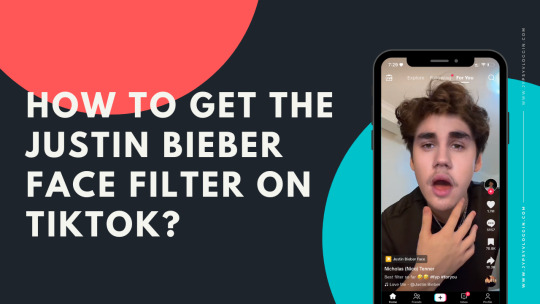
View On WordPress
0 notes
Text
0 notes
Text
Week 7: Face Filters
In this week's post, I am going to divulge the reality of face filters within the social media landscape, and how filtering is associated with a digital embodiment, beauty standards and pressures ingrained in societies culture. For this week, we exemplified the effect that face filters have on ethical digital citizenship, an individual's self-worth, body image, and in some cases, how it can result in 'Digitised Dysmorphia'. In one of the readings, Coy-Dibley (2016, p. 5) addresses the reality in which digitised cultures are similar to online beauty fixation, which in most cases, woefully results in 'Digitised Dysmorphia' and surgery.
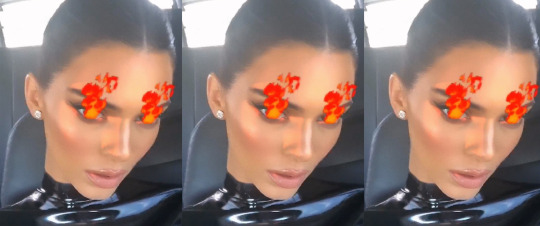

What is Face Filtering?
AR “face filters” — a mask-like augmented reality that adds virtual objects to an individual's face—have become wildly popular on Instagram, Snapchat, and even video calling on FaceTime. ... Often seen as play, AR face filters can provide an engaging and personal art experience. ("Face Filters for Instagram and Snapchat Are the New Frontier of Surrealist Art", 2019)
How do face filters work?
They detect an image of a face and superimpose virtual elements onto that face via AR. As the subject turns their head or makes different facial expressions, they activate the AR experience.
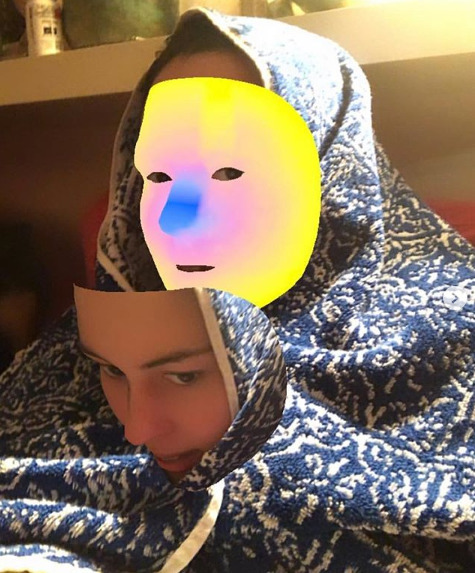
“Mask Off” by Jon Han. The filter pictured removes a user’s face, revealing a new identity underneath
Popular face filtering apps:
1. Facetune


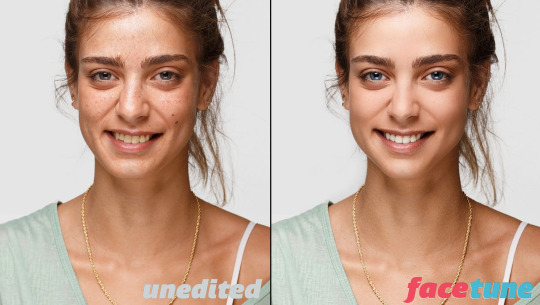
Facetune is a photo editing application used to edit, enhance, and retouch photos on a user’s iOS or Android device created by Lightricks. The app is often used for portrait and selfie editing.
“The massively popular photo-editing app Facetune is driving a generation of young women to extreme and obsessive lengths to look flawless online.” ("Selfies, Surgeries And Self-Loathing: Inside The Facetune Epidemic", 2021)
Before and After example from Facetune:
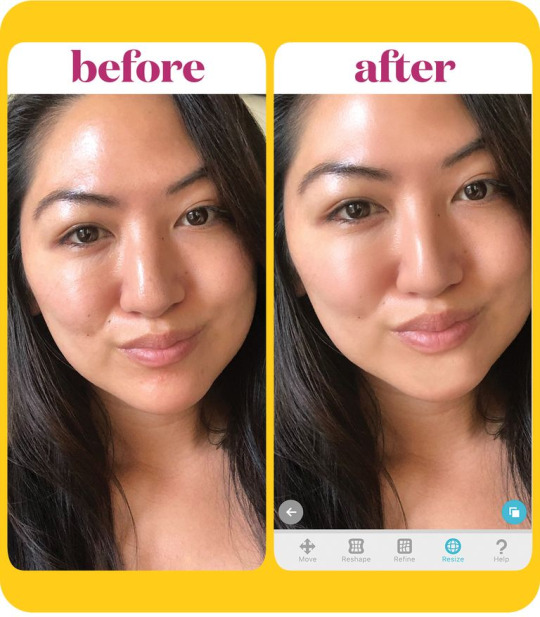
^ As you can see in the above image that on the left is a woman’s face with no filter and no makeup and on the right, her face in FaceTune with bigger lips, a smaller, straighter nose, and zero blemishes in sight.
From using the “Reshape” tool to cinch in your waist and give yourself a breast lift or even make your butt rounder, Facetune has many options to chose from to alter your appearance. It is addicting and can become an obsession for many. Some people even purchase the paid version of the app to have access to “more technical tweaks”, like individually repositioning your eyebrows and narrowing the tip of your nose.
According to Facetune user, Sky Lane, “It can get super obsessive because the second I take a photo I feel like I need to Facetune it,” “Now I’ll be like, ‘Oh my God, I’m chubby, but I can fix that.’” ("Selfies, Surgeries And Self-Loathing: Inside The Facetune Epidemic", 2021). Facetune makes it harder for people to love themselves, but at least they can love their edited photo, right?
Sky Lane’s Facetune image that she uploaded to Instagram:
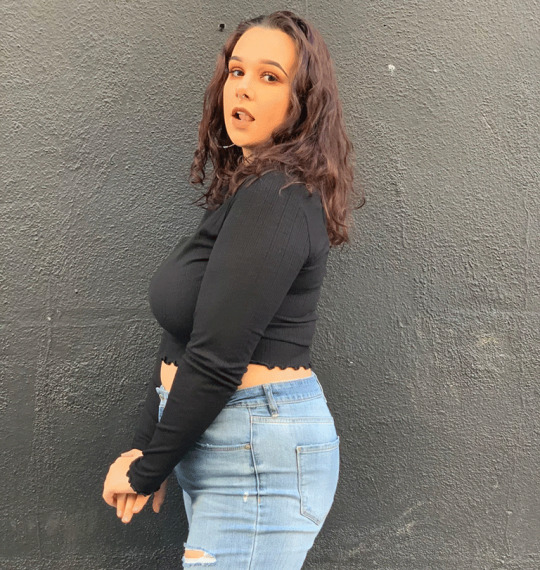
2. Photoshop Fix
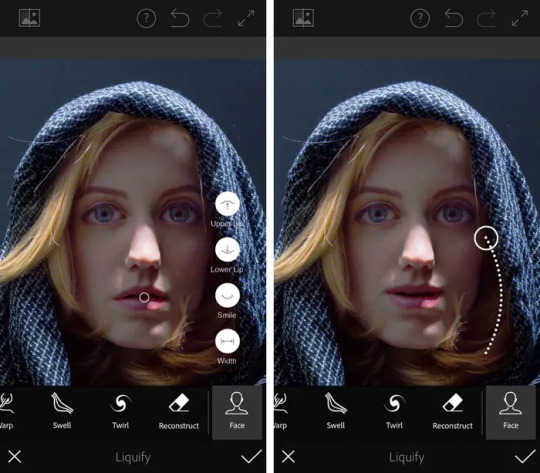
Photoshop Fix is not as easy to use as some of the other apps but it’s well worth learning. It includes a large range of photo retouching tools. The Lighten tool is great for teeth whitening and you can use the Smooth tool to even out skin. (Hermans, 2021)
The Healing brush will correct spots and blemishes quickly without effort. The standout feature is the Liquify tool, which allows you to make adjustments to facial features. (Hermans, 2021)
Why do people use filters?
Filters could prime us for biometric observation. (Rettberg 2017)
They have the potential to change self-perception on a mass scale.
They also offer us the ability to positively explore identity through digital dis/embodiment.

How Does Social Media Affect Beauty Standards and Mental Health?
Face filtering has been around for decades now, however with spending more time than ever on social media due to the COVID-19 pandemic, the face-tuning epidemic has only accelerated... There are only consequences to using face filters.
The pervasiveness of these filtered and manipulated images can seriously affect a person's self-esteem. Using these beautification filters can have severe consequences; they not only make you feel bad that you are not in the real world, but can also lead to digitised dysmorphia. They affect both self-image and self-esteem.
Believe it or not, the filters that are causing the most harm are those which alter facial features such as having larger eyes, blurred skin or bigger lips. It may not sound extreme, but perversely, it can lead us to believe a false sense of reality.
https://big.assets.huffingtonpost.com/athena/files/2021/05/18/60a40b5ee4b014bd0cb1ddc0.mp4
What is Digitised Dysmorphia?
Digitised Dysmorphia (Coy-Dibley 2016) is theory that helps us understanding the pressure placed on women to alter the digital image.
Digitised Dysmorphia is on a spectrum with BDD, but differs for two reasons:
- It is not a medical condition but a “socially constructed condition that is enabled by digital technology.”
- It is not inherently negative, and there is potential for positive uses of beauty technology.
Face Filtering and their link to Digitised Dysmorphia:
Woefully, for those obsessed and addicted individuals who use face filtering for every one of their images, their digital selves are the only version people see of them. And unfortunately for many, they can’t distinguish between their virtual persona with their reality which is a result of body dysmorphia. Dysmorphia at the extremes defies basic human psychology with an increase in unattainable beauty standards.

From FaceTune to Surgeries:
According to Huffpost, a teenager got her first Botox and lip fillers as a junior in college. That same year, she brought a Facetuned photo of her nose to her surgeon to turn it into a reality.
Facetune isn’t just a planning tool for people who are already considering cosmetic surgery. A study published last year by Dr. Michael Reilly revealed that “using Facetune actually instills and increases people’s desire to go under the knife”. ("Digital Appearance Manipulation Increases Consideration of Cosmetic Surgery: A Prospective Cohort Study", 2021)
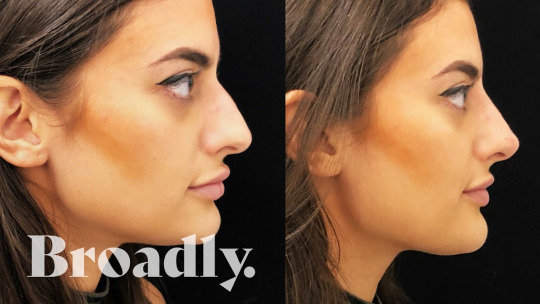
YouTube video link about a teenager girl getting a nose job based on a facetuned photo of her nose: https://www.google.com/url?sa=i&url=https%3A%2F%2Fwww.youtube.com%2Fwatch%3Fv%3D5ZOpLpSNW6c&psig=AOvVaw17OSXBQYTL53-RQMD1BNSR&ust=1621946791186000&source=images&cd=vfe&ved=0CA0QjhxqFwoTCJDl9-ms4vACFQAAAAAdAAAAABAJ
Are there any positives to using Face Filters?
Despite the dangers of face filtering, I personally believe that there are benefits concerning creativity. And I'm not the only one who agrees... According to an article, "Face Filters for Instagram and Snapchat Are the New Frontier of Surrealist Art". Jessica Herrington says, "By making AR filters, artists are creating tools. Instead of creating a singular experience, an individual with access to AR face filters is able to express, collaborate, and share multiple versions of themselves at any time. This way of producing and sharing multiple selves on such a massive scale is completely new in the history of art creation." ("Face Filters for Instagram and Snapchat Are the New Frontier of Surrealist Art", 2021).
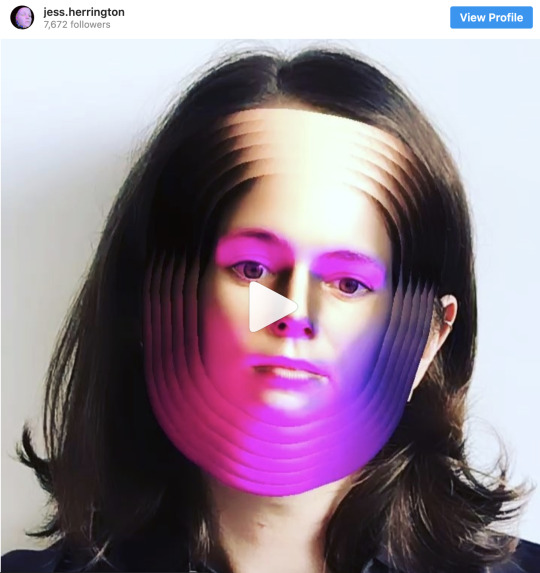
Examples of Face Filtering used as AR Art:
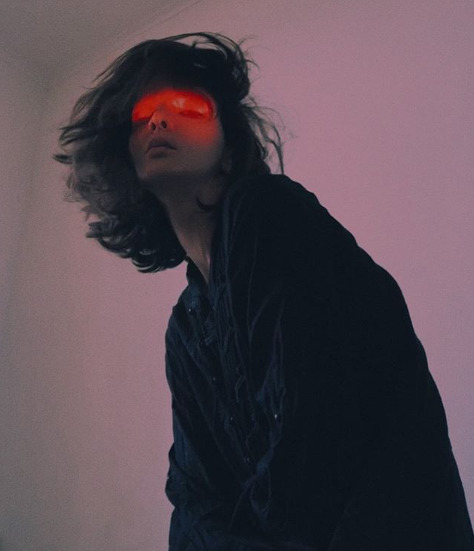
“Badland” by Johanna Jaskowska. The filter places red lighting over the user’s eyes acting as a mask.

“Love Machine” by Marc Wakefield. The user’s face is opened to reveal a robotic skull underneath.
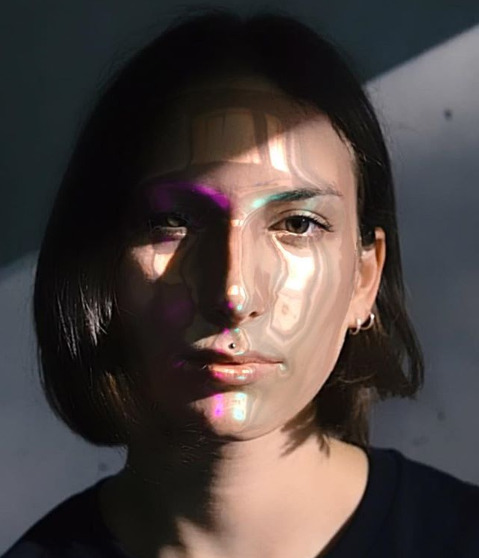
“Beauty 3000” by Johanna Jaskowska. The filter pictured applies a shiny, luminescent skin to a user’s face.
References:
Selfies, Surgeries And Self-Loathing: Inside The Facetune Epidemic. (2021). Retrieved 24 May 2021, from https://www.huffpost.com/entry/facetune-selfies-surgeries-body-dysmorphia_n_60926a11e4b0b9042d989d48
Coy-Dibley, I. 2016 “Digitized Dysmorphia” of the female body: the re/disfigurement of the image, Palgrave Communications, vol. 2, 16040, Retrieved 24 May 2021, <https://doi.org/10.1057/palcomms.2016.40>.
Face Filters for Instagram and Snapchat Are the New Frontier of Surrealist Art. (2019). Retrieved 24 May 2021, from https://onezero.medium.com/the-power-of-face-filters-as-augmented-reality-art-for-the-masses-65a95fb4a577#:~:text=AR%20%E2%80%9Cface%20filters%E2%80%9D%20%E2%80%94%20a,even%20video%20calling%20on%20FaceTime.&text=Often%20seen%20as%20play%2C%20AR,engaging%20and%20personal%20art%20experience.
Hermans, J. (2021). 7 Best Photo Retouching Apps for Smartphone Portraits 2021. Retrieved 24 May 2021, from https://expertphotography.com/photo-retouching-apps/
Digital Appearance Manipulation Increases Consideration of Cosmetic Surgery: A Prospective Cohort Study. (2021). Retrieved 24 May 2021, from https://pubmed.ncbi.nlm.nih.gov/32503384/
(2021). Retrieved 24 May 2021, from https://pubmed.ncbi.nlm.nih.gov/26469879/
#facefilters#filtering#beauty#instagram#socialmedia#dysmorphia#bodydsymorphia#digitiseddysmorphia#plasticsurgery#nosejob
4 notes
·
View notes
Video
instagram
@chika_htkksjpn with my face glitch selfie #💽💾☠ #armask 🖤🏴☠️⚙️🔪 . . . . . . . #duslf #facefilter #facefilters #ar #duvctrmsk #selfie #techgirl #techwear https://www.instagram.com/p/CR1nyVKDSb9/?utm_medium=tumblr
1 note
·
View note
Text
Week 7: Face Filters
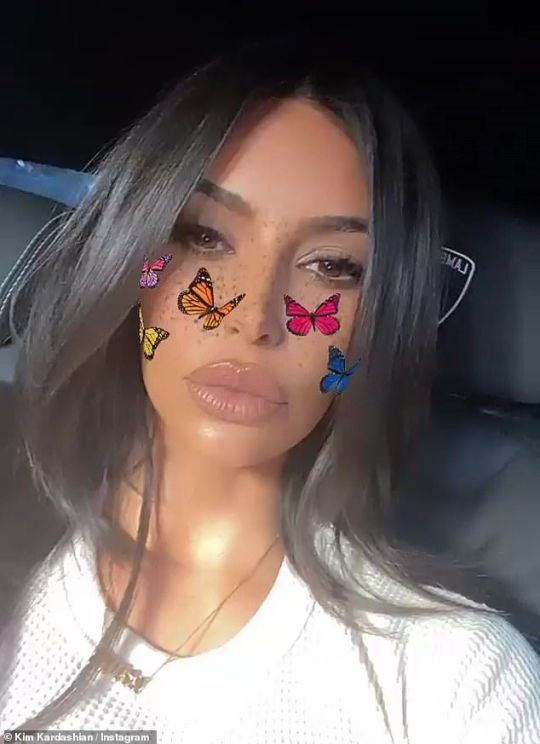
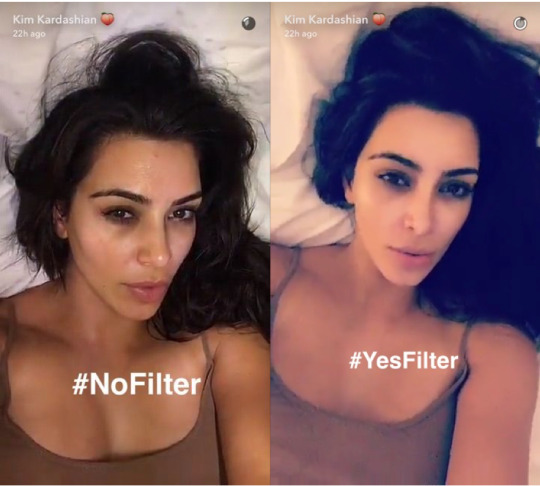
It is no surprise that beauty or face filters have become a norm when scrolling through social media sites such as Instagram or Facebook, and with the pandemic lockdown in 2020, this has only amplified screen time online. Face filters apply “virtual accessories and modify facial features, enabling users to incorporate augmented reality into their daily practice” (Barker 2017). Although, many face filters can be fun and entertaining and used in a positive and comical sense, society is beginning to see more beautification edits using apps like Facetune, which are becoming detrimental to our self-confidence and mental health.
An interesting quote pulled from a Women’s Health article (Rodulfo 2020) by 21-year-old Alec Bayot stated that:
The ‘Instagram face’ def makes me think of getting lip fillers… it’s crazy how much it makes me rethink my appearance.
Bayot also used the words “digital Play-Doh” to describe how editing apps allow users to mold, pinch and add volume to wherever they desire, and this process, despite seeming harmless in the beginning, can easily spiral into obsessive tendencies. “Nowadays women not only feel pressured to compete with socially generated beauty standards, but to compete with their own image too…to attain the unattainable” (Coy-Dibley 2015, p. 2). According to Leon Festinger’s social comparison theory (1954), “when unable to evaluate ourselves directly, we seek to satisfy this need for self-evaluation through comparison with other people” (Grogan, 2008: 118) and this, paired with the heavy use of face filters may lead to the manifestation of digitised dysmorphia. Coy-Dibley (2015, p. 2) defines that digitised dysmorphia is “shaped collectively by societal pressures, constructs of beauty and the technology presently available to attain these standards.”
Whilst scrolling through Facebook this week, I came across a video uploaded by VICE Lifethat highlights this concept of digitised dysmorphia through face filters. I found it very interesting that “previously, patients would bring images of celebrities to their consultations... [however, now they are] seeking out cosmetic surgery to look like filtered versions of themselves” (Rajanala et al. 2018). Overall, beauty filters have contributed to digitised dysmorphia over time by placing an unattainable pressure upon society and particularly women, to look a certain way in order to conform to today’s beauty standards. Although, this is the sad reality, I don’t think face filters will be seeing a decline in user participation anytime soon.
Here is the link to the VICE Life video below:
https://www.youtube.com/watch?v=5ZOpLpSNW6c
References:
Barker, J 2020, ‘Making-up on mobile: The pretty filters and ugly implications of Snapchat’, Intellect Limited, vol. 7, no. 2 & 3, pp. 207-221.
Coy-Dibley, I 2016, ‘Digitised dysmorphia of the femalebody: the re/disfigurement of the image’, Palgrave Communications, 2:16040 doi: 10.1057/palcomms.2016.40.
Rodulfo, K 2020, “It’s Easier Than Ever To Make A New Face On Social Media. But Is It Killing Your Confidence?,” Women’s Health, Women’s Health, viewed 23 April, 2021, <https://www.womenshealthmag.com/beauty/a33264141/face-filters-mental-health-effect/>.
Susruthi Rajanala, Maymone, MBC & Neelam Vashi 2018, “Selfies—Living in the Era of Filtered Photographs,” ResearchGate, American Medical Association, viewed 23 April, 2021, <https://www.researchgate.net/publication/326796822_Selfies-Living_in_the_Era_of_Filtered_Photographs>.
VICE Life 2018, “I Got Surgery to Look Like My Snapchat and Facetune Selfies,” YouTube, viewed 23 April, 2021, <https://www.youtube.com/watch?v=5ZOpLpSNW6c>.
#mda2000921#digitalcommunities#facefilters#instagram#snapchat#dysmorphia#social media#beauty#kardashians
1 note
·
View note
Photo

Do you agree? How often do you use filters? Which app has the best filters? . . . . . #aestheticfilters #filtersfordays #instafilters #facefilters #instadaily #followme #beautiful #saturate #selflove #igfilters #filterselfie #nisifilters #comment #snapfilters #filter #vscofilters #polarrfilters #filters #instagramfilters #mood #love #follow #picoftheday via @hashtagexpert https://www.instagram.com/p/CNdoZwEFY-N/?igshid=1hjgt82pg12xt
#aestheticfilters#filtersfordays#instafilters#facefilters#instadaily#followme#beautiful#saturate#selflove#igfilters#filterselfie#nisifilters#comment#snapfilters#filter#vscofilters#polarrfilters#filters#instagramfilters#mood#love#follow#picoftheday
1 note
·
View note
Photo

Infinity Icon 🐣 try it on 👀🙃➡️ https://www.instagram.com/a/r/?effect_id=445871183005070
#sparkar#facefilters#cyber#cybertokyo#tokyo#cyberpunk#cyberparty#GraphicDesign#cindy kutikova#face filter
38 notes
·
View notes